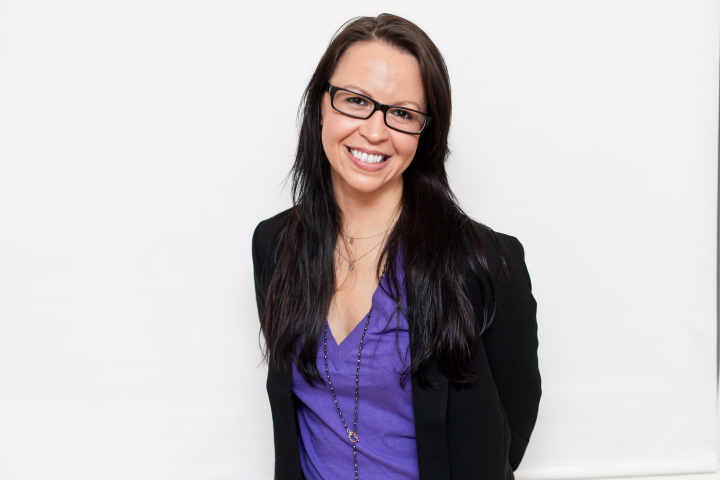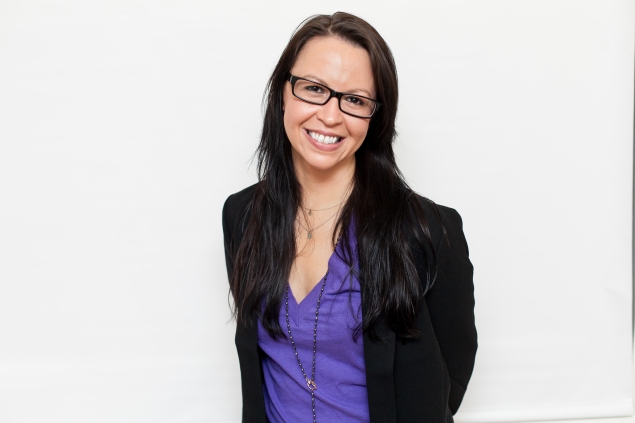First, I should note: I am not related to Jennifer Armstrong. But! I have followed her writing closely over the years — first during her years at Entertainment Weekly, and more recently as the author of books like Mary and Lou and Rhoda and Ted (Simon & Schuster), which offered a definitive history of the classic TV series. Her blog also happens to be a must-follow on WordPress.com: She gives glimpses into her current work (she’s doing a Seinfeld book next) and she’s refreshingly transparent about the business (and hard truths) of being a freelance writer in 2015. I spoke with her via email about the business of writing and tips for how she makes time for her own blog.
***
You are in the middle of writing a book about Seinfeld, but you are also quite prolific on your blog right now, with posts about your book research and the business of freelancing and book publishing. Do you force yourself into a schedule, or is this more free-flowing, when the mood strikes you?
It’s a little bit of both. I’m finishing edits on my Seinfeld book, so that will no longer be taking up much time very soon. (And it was off my plate for a while right after I turned it in.) I absolutely have a daily schedule for working on weekdays (roughly 10 a.m. to 6 p.m., with a lunch/rest break from 1 p.m. to 3-ish). And this includes time in the morning dedicated to checking/responding to email, playing on social media, and blogging. I vaguely aim for daily posting, or at least daily thinking about posting; but I don’t force a post if I have nothing to say. I fall off this a bit if I have a lot of pressing deadlines for paid work.
Wait, so you respond to email BEFORE writing? I feel like all the Lifehacker blog posts tell us to ignore email until we’ve pumped out 700 words.
I like to get all my possible procrastination out of the way FIRST. Plus as a freelancer I get a little itchy not knowing what’s going on in my email/not responding to stuff right away. So I do one run at email (I like an inbox-zero when possible), a basic pass at Facebook and Twitter, then blog. I also like to know what’s going on in the world a little before I blog; if everybody’s talking about something that I want to write about, that’s good to know. This honestly often takes up most to all of my morning, but then when I come back to my desk after lunch I can just write up a storm for a few solid hours. I’ve always been better in the afternoon anyway. 3 to 6 p.m. tends to be my most productive time.
Your most recent writing on your blog has been about the business of freelancing, and what I appreciated about your original post and your follow-up post was how explicit you were about what’s required to actually make a freelance writing career really happen. Is it really still possible in 2015?
I do think it’s possible, because I’ve been doing it for three years and seem like I’ll make it another year. I also know other people who are doing it.
Your posts are also transparent about finances — like what you might be able to get from a book deal — and it seems like you look for a very delicate balance between being helpful and encouraging to those who want to pursue a freelance career, but clear about the realities of the publishing business right now.
No matter how many times people tell you how hard it is to be a freelance writer, you never truly understand until you do it. I guess we all like to believe we’ll be the exception. And that’s okay, as long as you’re prepared mentally. I teach at Gotham Writers’ Workshops, and sometimes I get students who are clearly thinking they’re going to just become freelance writers. It’s hard for me, even with lots of experience. If they still want to do it, that’s great; I just want them to know the reality.
In that same vein, I think my approach in general when teaching writing and doing one-on-one coaching with writers is exactly what you said: being encouraging while still being very tough-love realistic. I don’t want to get too “boo hoo writing is so hard!” Because it’s a great job. But you have to have a specific temperament that’s immune to rejection and loves the hustle. These traits don’t come naturally to all writers. I also think it’s important for us to talk a little more openly about money. There’s something specific to writers that makes us shy about it. Maybe because of writing’s proximity to art, like we’re supposed to be doing this only out of the depths of our soul and money shouldn’t matter? Writing really is a skill, and journalism definitely is. We should be paid for our work. Other professionals enjoy their work, too, and get paid decently for it.
Based on your past experience, what does the freelance market look like right now? Is it better or worse than it was, say, five years ago? I feel like we’ve seen a lot of new media startups take off, but it’s unclear to me whether many of them are using freelancers or simply hiring full-time staff.
Exactly! I am always loathe to say things are getting “worse,” though it certainly seems like it was more fun and profitable to be a freelance journalist, say, in the 1960s (or ’70s, or ’80s, or ’90s …). There are tons of startups now, and with venture capital. (That’s key because they don’t have to be profitable for a while, and yet they still have gobs of money.) I’m hopeful that this will work out well for freelancers. Those places are staffing up, but I’ve also successfully pitched a few. I certainly have a long list of targets right now! There’s also a lot more demand for the kind of stuff I write — pop culture stuff. So it’s still early to tell if Vox and the like are going to make a difference for us, but it does seem like the more outlets needing material, the better off we all are.
Do you think this influx also creates an opportunity for established freelancers to “auction” their stories to a highest bidder? Say, similar to book publishing’s system? It feels like online publishers for a long time benefitted from the lack of competition for story pitches, allowing them to keep their rates down, and I wonder if that is changing too.
I hope so! I do feel like I have a few more options, and find myself sorta auctioning them in my head. That is, strategizing to start with the place most likely to pay well. Some digital outlets also pay surprisingly well, which is a change that just started to happen after the terrible “free” trend of several years. I’ve been pleasantly surprised with a few digital outlets recently when they told me what they’d pay for something.
Beyond the freelancing advice on your site, you’ve written a lot of great posts about your books in progress—including your forthcoming book on Seinfeld. Do you have a strategy for how you write about your books that aren’t yet released? Do publishers have “feelings” about how much you share and when?
I used to think I shouldn’t reveal ANYTHING. But honestly, the more I’ve read about this, the more I think the opposite is true. Little tastes of books get people excited, and sometimes I sort-of “workshop” stuff online. If people seem excited about it or have questions, maybe I’ll put even more in the book. Also, when I’m really in the thick of a book, it’s hard to blog about anything else! I’ve shared more about the Seinfeld book than any other I’ve done, and it feels like it has gained me followers and helped build excitement for the book, which is great. And so far my publisher hasn’t expressed any feelings! I do know that with previous books, they didn’t want EVERYTHING online. But a little bit strategically seems to work.
I think that makes a ton of sense. How did the Seinfeld book idea first come together for you?
Well, I write about TV shows, and it’s hard to imagine a show that’s had more cultural impact. It’s as simple as that: This is a show that went off the air 17 years ago, and somehow people are still constantly talking and writing about it! If you write books about TV, you can’t do better than that.
Were you always a fan? I remember not really loving it (or perhaps more appropriately, not getting it) when it first aired.
I don’t think I’ve ever identified as a Seinfeld Fan (with a capital F). That made me nervous at first about tackling the book because I know how passionate some of the fans are. (Many, many people are sure they are THE biggest Seinfeld fan.) I always liked it and thought it was smart. I’d almost always watch the reruns when I encountered them while flipping through channels. I never got tired of the show. (Miraculously, I am still not.) But I think not identifying as the biggest Seinfeld fan ever helped me, ultimately, in writing the book. It gave me some distance from the show and the phenomenon.
I wonder if working on something that has had such a huge cultural impact presents its own challenges when putting together a book—the material is plentiful, but perhaps too plentiful?
And yes, there is tons of information! Ultimately that ends up being a good thing when you’re writing a book, but it was more challenging to organize than my previous books. The other challenge is finding anything new to say about it! But I’m happy to report that I did get a few “scoops.” I also tried to look deeper into how and why the show struck such a chord and continues to have such relevance to this very second. That, to me, is what makes the show unique among its contemporaries, and even among all other classic TV. It feels like it’s still on today, it’s so pervasive in our culture, even though the last episode was filmed in 1998.
Back to your blog: Do you have friends or colleagues with whom you share your draft posts before you publish them? Or is it more of an off-the-cuff process for you? I’m just wondering whether there’s a process for professional writers when it comes to when you decide you need or want a second set of eyes.
I don’t usually do that much with blog posts; only if I’m writing something delicate that I want to make sure comes through the right way. Otherwise I usually churn out a post and move on. But I am generally a huge fan of having people read stuff, especially longer pieces. I won’t turn any book or proposal in without doing this. I’m lucky in that my partner turns out to be a great editor (though he’s not a professional). I also have some friends I go to over and over for this, most often my friend Heather Wood Rudúlph, with whom I wrote Sexy Feminism. We ran a website together for about eight years, so we know we collaborate well. We read each other’s stuff and have monthly-ish phone meetings to bounce pitches off of each other. I love doing this as a freelancer because we don’t have the advantage of story meetings like staffers do. Ideas always get better when you talk about them.





